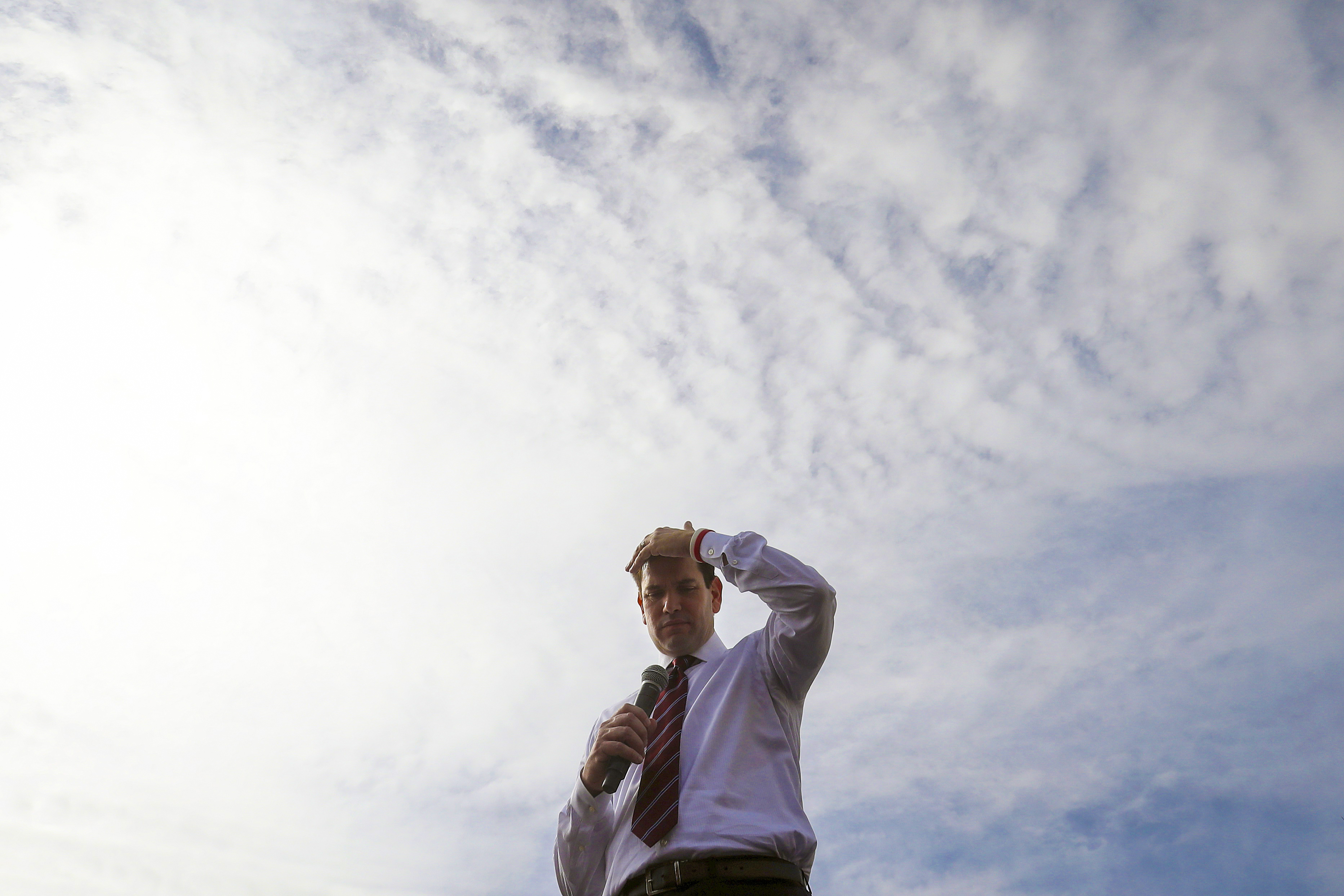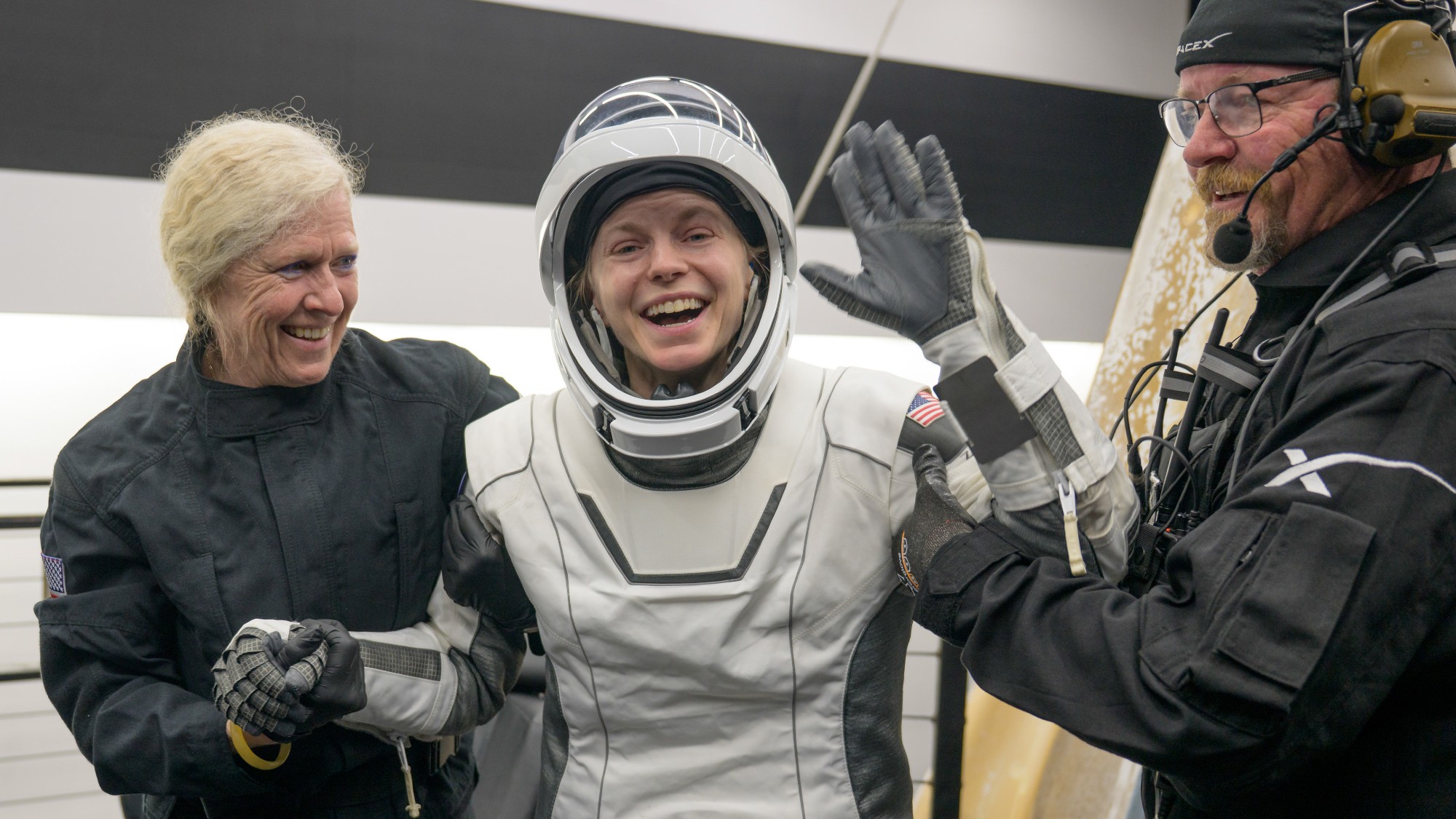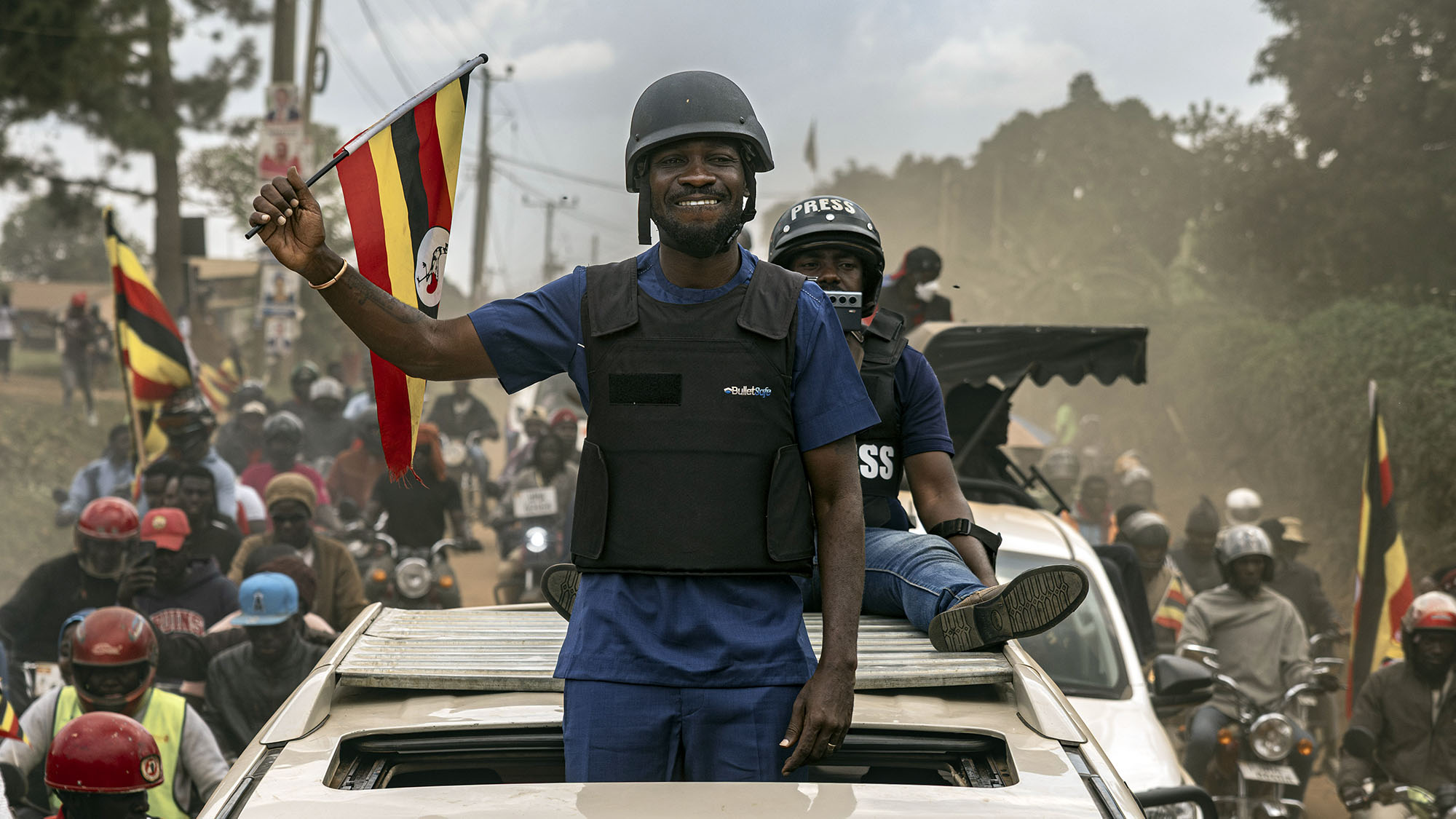The last stand for Marco Rubio and John Kasich
Today may be the most important day in the Republican presidential race


Today may be the most important day in the Republican presidential race.
There are five Republican primaries tonight — Ohio, Illinois, Missouri, North Carolina, and Florida — and one GOP caucus (the Northern Mariana Islands) with a total of 367 delegates on the line for the party's presidential contenders. In Florida, all 99 delegates will go the winner. The same is true for Ohio's 66 delegates.
But it's about more than delegates. Voters in Florida and Ohio have an opportunity to keep two of the four remaining candidates in the race, or to force the race down to two men. Indeed, the outcome of today's primaries could also set up the first legitimately contested election in decades.
The Week
Escape your echo chamber. Get the facts behind the news, plus analysis from multiple perspectives.

Sign up for The Week's Free Newsletters
From our morning news briefing to a weekly Good News Newsletter, get the best of The Week delivered directly to your inbox.
From our morning news briefing to a weekly Good News Newsletter, get the best of The Week delivered directly to your inbox.
Florida is the biggest prize of the night, and perhaps the most watched for its potential consequences on Sen. Marco Rubio's campaign. Rubio has won three contests (Minnesota, Puerto Rico, and the District of Columbia), but has had a tough go of it otherwise. He trails Donald Trump and Ted Cruz in delegates; they have a relatively close 1-2 race with 460 and 369 delegates respectively. Rubio is in a distant third with 163.
Rubio's campaign has argued from the start that the freshman senator who in 2010 trounced a popular sitting governor for a Senate seat gave Republicans their best opportunity to both unite and expand the party. Florida is the most critical state for the GOP in the general election, with 29 Electoral College votes that went to Barack Obama in the last two elections. It also happens to be Rubio's home turf, which puts his claims of superior electability to the test.
So far, at least according to pollsters, that argument hasn't swayed many voters. Most polls listed by Real Clear Politics over the past two weeks show Trump with a double-digit lead, and the other handful show Rubio still trailing by single digits. The latest poll from Monmouth shows Trump leading Rubio even among those who approve of the job Rubio has done in the Senate. Most critically, Trump not only leads in the northern part of the state, which leans in a similar political direction as the deep South, but also in the central region — including the critical I-4 corridor — 43 percent to 26 percent.
Rubio's camp insists that its internal polling shows a much more competitive race in Florida. It's also a closed primary, meaning only registered Republicans can vote, and Trump tends to underperform his polling in such states — but not dramatically so. So to win Florida, Rubio will have to hope that the pollsters have failed as badly as they did in Michigan, where no one predicted a Bernie Sanders win.
A free daily email with the biggest news stories of the day – and the best features from TheWeek.com
Without a win in Florida, Rubio will have both math and common sense working against him. He would have no shot at winning enough delegates to get back into the race. And having failed to win his home state after struggling to contend in dozens of other states, Rubio would have an awfully hard time claiming any sort of rationale to stay in the race until the convention.
John Kasich faces better — and worse — news in Ohio. The two-term governor knows how to turn out voters, and most polling shows him with narrow leads over Trump. Ohio has a mixed primary rather than a closed primary, but Kasich's ground operation can be counted on for a strong turnout.
The bad news for Kasich: It may not matter, at least in terms of a traditional nomination fight. Ohio's 66 delegates would leave him behind Rubio even if Trump wins Florida. As Robert Eno writes at the Conservative Review, even winning delegates from the other three proportionally allocated contests in line with Kasich's current polling puts his possible delegate total at the end of tonight at 140. The remaining contests only have 1,009 delegates left to allocate, so even if Kasich ran the table, he would come up almost 100 delegates short of the 1,237 needed to win the nomination on the first ballot.
That leaves only Trump and Cruz with a realistic shot at winning the nomination outright. Cruz is not expected to contend for either Florida or Ohio, but his success in Oklahoma and Kansas puts him in contention for a Missouri win, with 52 delegates at stake. Cruz can expect to win a proportional allocation of delegates in the other two primaries, polling second in North Carolina (72 delegates) and in Illinois (69 delegates), but Trump leads in both and would win more delegates if polling holds. If that happens and Trump wins Florida, then Cruz will need Missouri to keep from dropping too far off the pace for delegates.
Even if Trump wins Florida, though, the outlook for an outright first-ballot nomination looks increasingly murky without a sweep of the winner-take-all states tonight. Without Ohio or Missouri, Trump's delegate ceiling tonight would be around 200 — a good haul, but only bringing him slightly more than halfway to 1,237. Trump would need to win 570 or so of the remaining 1,009 delegates with Cruz as the only realistic adversary — doable, but perhaps not as likely as it might have looked with multiple candidates competing for votes. If Rubio loses Florida, he may well throw in with Cruz to slow Trump's momentum and force a contested convention.
What would happen with a fractured result tonight? Cruz certainly would continue his challenge to Trump and could start racking up victories if the other two candidates either drop out or run out of resources. However, even short of an outright majority, Trump will have a powerful argument for a convention win if he winds up with a large plurality over three distant challengers. A floor fight that nominates someone else under those circumstances could drive Trump's supporters out of the general election in November. That is a risk that Republicans urging a consolidation behind a single challenger to Trump seem increasingly willing to take.
Every single state in tonight's Super Tuesday II holds great import for the GOP and the convention. A big night for Trump — especially a sweep of Florida, Ohio, and Missouri — will all but cinch a first-ballot nomination and make all of these calculations moot. Those who want any other result had better hope the winner-take-all states force the GOP to have the battle for the party's soul at the all-hands-on-deck convention in Cleveland.
Edward Morrissey has been writing about politics since 2003 in his blog, Captain's Quarters, and now writes for HotAir.com. His columns have appeared in the Washington Post, the New York Post, The New York Sun, the Washington Times, and other newspapers. Morrissey has a daily Internet talk show on politics and culture at Hot Air. Since 2004, Morrissey has had a weekend talk radio show in the Minneapolis/St. Paul area and often fills in as a guest on Salem Radio Network's nationally-syndicated shows. He lives in the Twin Cities area of Minnesota with his wife, son and daughter-in-law, and his two granddaughters. Morrissey's new book, GOING RED, will be published by Crown Forum on April 5, 2016.
-
 Quiz of The Week: 10 – 16 January
Quiz of The Week: 10 – 16 JanuaryQuiz Have you been paying attention to The Week’s news?
-
 Woman in Mind: a ‘triumphant’ revival of Alan Ayckbourn’s dark comedy
Woman in Mind: a ‘triumphant’ revival of Alan Ayckbourn’s dark comedyThe Week Recommends Sheridan Smith and Romesh Ranganathan dazzle in ‘bitterly funny farce’
-
 The Week Unwrapped: Will Uganda’s pop-star politician prevail?
The Week Unwrapped: Will Uganda’s pop-star politician prevail?Podcast Plus, is dodgy data undermining medical research? And what does a new app reveal about Chinese society?
-
 The billionaires’ wealth tax: a catastrophe for California?
The billionaires’ wealth tax: a catastrophe for California?Talking Point Peter Thiel and Larry Page preparing to change state residency
-
 Bari Weiss’ ‘60 Minutes’ scandal is about more than one report
Bari Weiss’ ‘60 Minutes’ scandal is about more than one reportIN THE SPOTLIGHT By blocking an approved segment on a controversial prison holding US deportees in El Salvador, the editor-in-chief of CBS News has become the main story
-
 Has Zohran Mamdani shown the Democrats how to win again?
Has Zohran Mamdani shown the Democrats how to win again?Today’s Big Question New York City mayoral election touted as victory for left-wing populists but moderate centrist wins elsewhere present more complex path for Democratic Party
-
 Millions turn out for anti-Trump ‘No Kings’ rallies
Millions turn out for anti-Trump ‘No Kings’ ralliesSpeed Read An estimated 7 million people participated, 2 million more than at the first ‘No Kings’ protest in June
-
 Ghislaine Maxwell: angling for a Trump pardon
Ghislaine Maxwell: angling for a Trump pardonTalking Point Convicted sex trafficker's testimony could shed new light on president's links to Jeffrey Epstein
-
 The last words and final moments of 40 presidents
The last words and final moments of 40 presidentsThe Explainer Some are eloquent quotes worthy of the holders of the highest office in the nation, and others... aren't
-
 The JFK files: the truth at last?
The JFK files: the truth at last?In The Spotlight More than 64,000 previously classified documents relating the 1963 assassination of John F. Kennedy have been released by the Trump administration
-
 'Seriously, not literally': how should the world take Donald Trump?
'Seriously, not literally': how should the world take Donald Trump?Today's big question White House rhetoric and reality look likely to become increasingly blurred
